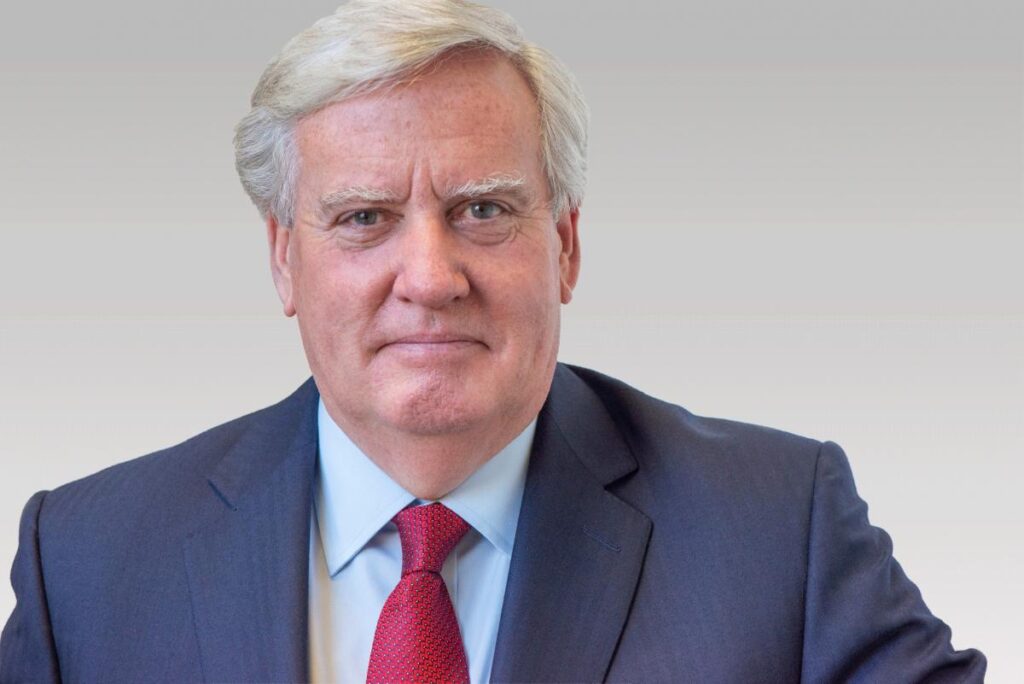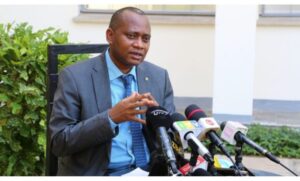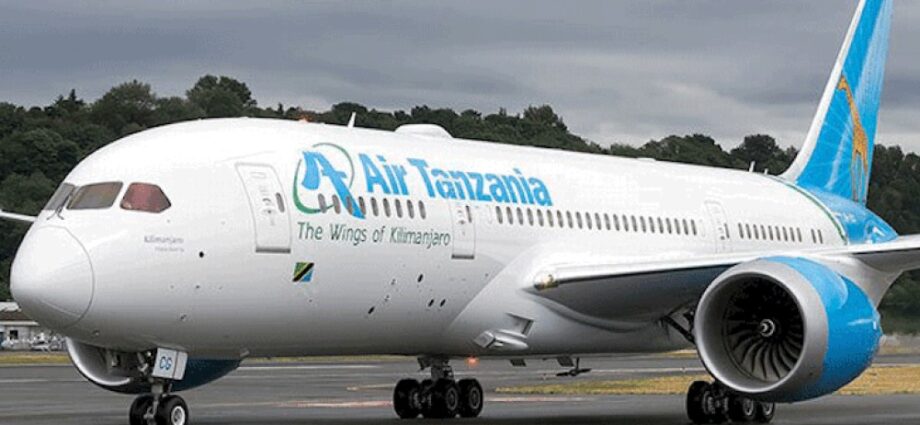An Air Tanzania plane is grounded in Sweden after it was included as part of a multi-million dollar compensation award to a Swedish Investor, EcoDevelopment this week.
The Swedish investor has won a US$165 million award against the Government of Tanzania and persuaded a Dutch court to uphold the attachment of the Airbus A220 owned by the East African state of Tanzania, even though the ICSID (The World Bank’s International Centre for Settlement of Investment Disputes) has stayed enforcement, pending possible annulment proceedings.
The ICSID is involved because it offers specialized rules of procedure for arbitration, conciliation, fact-finding, and mediation in these sorts of cases between Countries and States. These are the most commonly used procedural rules in investor-State dispute settlement.
On 8 November, a preliminary relief judge in the District Court of Limburg, Sweden refused to lift the attachment granted in favour of Swedish investor EcoDevelopment in Europe.
Tanzania argued the attachment was unlawful because it was obtained a day after it had applied to ICSID to annul EcoDevelopment’s award. But the judge reasoned that ICSID’s provisional stay of enforcement of the award only took effect on the date that the institution registered the state’s annulment request.
The Swedish company is using Houthoff in the Dutch courts and Mannheimer Swartling in the ICSID proceedings. Tanzania has turned to Buren Legal for the attachment proceedings but has not appointed external counsel in the arbitration or annulment proceedings.
EcoDevelopment, which is owned by 18 Swedish citizens and business leaders, brought its ICSID claim back in 2017 under the Sweden-Tanzania bilateral investment treaty.
The dispute concerned abandoned plans to develop a sugar cane project in Bagamoyo on the eastern coast of Tanzania. The project was intended to produce sugar for export as well as ethanol for use in generating electricity.
But the project encountered opposition from local activists on behalf of 1,300 farmers still using the land.
The investor also blamed the government for failing to introduce a new sugar industry regulation and provide land free from incumbrance. A new government under President John Magufuli revoked the title to the land in 2016.
The land revocation was a major blow to the Swedish company, which had for over ten years worked to develop the project and invested $52 million in a ready-to-go project for local production of sugar, renewable electricity, and fuel.
The consortium of EcoEnergy Africa AB of Sweden and Uttam Group of India was to inject $100 million into the project as its own equity before the Tanzania government decided to unilaterally revoke the land title for the Bagamoyo multi-billion sugar project.

In April this year, an ICSID tribunal chaired by the UK’s Sir Christopher Greenwood KC and including Stanimir Alexandrov and Funke Adekoya SAN issued an award in EcoDevelopment’s favour and ordered Tanzania to pay nearly US$165 million.
Then on 16 June, a day after ICSID received Tanzania’s application to annul the award, EcoDevelopment obtained leave from the District Court of The Hague to pursue enforcement; and an ex parte ruling from the provisional relief judge in Limburg permitting the plane seizure.
The Airbus A220 plane, operated by the state’s flag carrier Air Tanzania, had already been grounded at Maastricht Aachen Airport since January this year, reportedly because of engine problems.
ICSID eventually registered the annulment request on 21 June and notified the parties of the provisional stay of enforcement.
An ICSID ad hoc committee chaired by ex-Milbank partner Michael Nolan and including Carole Malinvaud of Gide Loyrette Nouel and Kenya’s former attorney general Githu Muigai issued a decision in September continuing the stay of enforcement.
Tanzania meanwhile applied to the Limburg court to lift the attachment and prohibit EcoDevelopment from seeking any further attachment based on the ICSID award while the annulment proceedings are pending.
The state argued that the effect of the automatic stay granted by ICSID was that the award was not provisionally enforceable and that the attachment was thus granted unlawfully. It contended that the Dutch courts were bound to recognise the ICSID stay decision as binding.
Tanzania also argued that the attachment had affected its interests in a disproportionately serious way and that as a national government it had sufficient assets within and outside its territory to ensure the award would be paid.
But in this month’s decision, Judge KJH Hoofs said it was not clear from the ICSID Convention when the provisional stay commences. While Christoph Schreuer’s well-known commentary on the convention suggests it takes effect from the date of an annulment application, the judge said ICSID case law suggested it took effect upon the date of its registration by ICSID. The judge therefore concluded that the attachment was lawful.
The judge also said the ad hoc committee’s decision to continue the stay did not affect the attachment, and that Dutch law applied to the execution of the award. She said she could only lift an enforcement order if the executing party had no reasonable interest in using their power of enforcement, which Tanzania had not demonstrated.
She also declined to prohibit further attachments, observing that EcoDevelopment had already stated that it would not sell the aircraft or take further enforcement measures while the annulment proceeding was ongoing.
Earlier this month, the ad hoc committee rejected an unusual attempt by EcoDevelopment to have Tanzania’s annulment request thrown out under ICSID rule 41(5), which allows for expedited dismissal of claims that are manifestly without legal merit. The mechanism is more commonly used in ICSID arbitrations but was invoked by Panama last year in a failed bid to knock out an annulment request by Dominion Minerals.
In a report for the Global Arbitration Review Susannah Moody, reported two days ago the details of the case as follows:
United Republic of Tanzania v. EcoDevelopment in Europe AB & others (C/03/310349/KG SA 22-395)
In the District Court of Limburg
Bench
- K Hoofs
Counsel to Tanzania
- Buren Legal Tax Notary
Partner Philip ter Burg and associate Michelle Engberts in The Hague
Counsel to EcoDevelopment and others
- Houthoff
Partners Dirk Knottenbelt and Thomas Stouten, senior associate Eva Milou Moison and associates Alejandro Gonzalez and Allard Kool in Rotterdam
EcoDevelopment in Europe AB & others v. United Republic of Tanzania (ICSID Case No. ARB/17/33)
Annulment proceedings
Ad hoc committee
- Michael Nolan (US) (president)
- Carole Malinvaud (French)
- Githu Muigai (Kenyan)
Counsel to the claimants
- Mannheimer Swartling
Counsel to Tanzania
Office of the Attorney General, Dar es Salaam, Tanzania
EcoDevelopment in Europe AB & others v. United Republic of Tanzania (ICSID Case No. ARB/17/33)
Tribunal
- Christopher Greenwood (British)
- Stanimir Alexandrov (Bulgarian) (appointed by the claimants)
- Olufunke Adekoya (British, Nigerian) (appointed by the respondent)
Counsel to the claimants
- Mannheimer Swartling
Partner Jakob Ragnwaldh in Hong Kong with associates Robin Rylander and David Sandberg in Stockholm
- Kaj Hober of 3 Verulam Buildings
Counsel to Tanzania
Office of the Attorney General, Dar es Salaam, Tanzania
Share this news
This Year’s Most Read News Stories

Ali Hassan Mwinyi, Former President of Tanzania, Dies at 98
Ali Hassan Mwinyi, a schoolteacher turned politician who led Tanzania as its second post-independence president and helped dismantle the doctrinaire socialism of his predecessor, Julius K. Nyerere, died on Thursday in Dar es Salaam, the country’s former capital. He was 98.Continue Reading

Tanzania Declares Marburg Outbreak – Africa CDC Mobilizes Immediate Response

Addis Ababa, January 20, 2025</Strong> — Tanzania has declared a Marburg virus disease (MVD) outbreak after confirming one case and identifying 25 suspected cases in the Kagera Region of Northwestern Tanzania. The Marburg virus, a highly infectious and often fatal disease, is similar to Ebola and is transmitted to humans from fruit bats and monkeys. This outbreak marks the nation’s second encounter with the deadly virus, following the outbreak in Bukoba District of Kagera Region in March 2023, which resulted in nine cases and six deaths.
In response to this urgent threat, the Africa CDC is mobilizing strong support to help Tanzania contain the outbreak. A team of twelve public health experts will be deployed as part of an advance mission in the next 24 hours. The multidisciplinary team includes epidemiologists, risk communication, infection prevention and control (IPC), and laboratory experts to provide on-ground support for surveillance, IPC, diagnostics, and community engagement.
The Director-General of Africa CDC, Dr. Jean Kaseya, has engaged with Tanzania’s President Samia Suluhu Hassan and the Minister of Health to ensure coordinated efforts and secure political commitment for the response.
“Africa CDC stands firmly with Tanzania in this critical moment. To support the government’s efforts, we are committing US$ 2 million to bolster immediate response measures, including deploying public health experts, strengthening diagnostics, and enhancing case management. Building on Tanzania’s commendable response during the 2023 outbreak, we are confident that swift and decisive action, combined with our support and those of other partners, will bring this outbreak under control,” Dr. Kaseya stated.
Africa CDC has recently supported efforts to enhance the diagnostic and sequencing capacity of public health laboratories in Tanzania. PCR Test kits and genomic sequencing reagents have been dispatched, with additional supplies in the pipeline. To ensure rapid identification and confirmation of cases, the institution will also provide technical assistance to strengthen detection and genome sequencing for better characterization of the pathogen. Additionally, support will be provided to improve case management protocols and enhance the capacity to deliver safe and effective treatment.
Africa CDC is committed to working closely with the Government of Tanzania, regional partners, international organizations, and global stakeholders, including the World Health Organization, to stop the spread of the Marburg virus.
Source: allafrica.com

Tanzania PS Wants Greater Public Awareness in Health Insurance
Dodoma — PERMANENT Secretary (PS) for Health Ministry, Prof Abel Makubi, said accomplishing universal health insurance requires greater awareness to members of the public before the programme kicks off on July 1, 2023.Continue Reading











